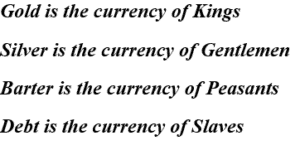
This might be the most controversial piece I ever write, and rightly so.
In the last decade, the German government, without firing a bullet or mobilizing a tank, has completely dominated European politics and has passively solidified its old intentions of regional supremacy.
Hitler could only have fantasized such an outcome for the German Reich.
Hitler is one of humankind’s greatest monsters. Yet he had a very shrewd and successful foreign policy up to the outbreak of WW2 in 1939. Before he plunged the nations of the world into the greatest war on earth, Hitler convinced the West that one of his main goals was peace with equality. I know it sounds absurd today, but that was the situation prior to 1938.
To understand Hitler’s rise, one must understand what he represented to most Germans at the time. Hitler came to power in Germany under his mandate of restoring the country to its past glory and undoing the much-hated Treaty of Versailles.
That peace settlement crippled Germany’s economic ability to recover from its WW1 reparations. It also prevented Germany from restoring its military to a global level of prominence.
Hitler’s propaganda struck a chord with the masses in Germany. Part of the reason for his rise was that the people wanted their nation to take its place among the global superpowers. Hitler was seen as the man who would get them there.
A Nazi Chorus with a Twist
During Hitler’s ascendency, there was a famous Nazi song called Es zittern die morschen Knochen which in English means: “The rotten bones are trembling.” It was sung by millions. A line from the chorus had a special twisted meaning to the Nazis, as you can see below:


Hitler’s Foreign Policy Coup d’état

Between 1933 and 1938, Hitler would execute a series of impressive foreign policy victories, which nobody in Europe at the time expected.
The image Hitler portrayed to the German people initially, and on the European stage at the time, was very different then the Hitler we know today: the one with a boundless evil desire for world domination and an intent on expanding at all costs. At the time, he created an image of peacefully restoring Germany to its past place of glory.
But that quickly changed, for the worse. Eventually Hitler’s propaganda machine turned its sights to the east, the direction in which Germans historically looked to expand. The objective was to take land from the Slavs.
Hitler spoke much of creating an autocratic, economically independent third Reich. In order to achieve that, Hitler believed Germany not only had to escape the Treaty of Versailles, it needed more land. The only solution was to expand and colonize. Hitler often referred to the ill effects of the sanctions laid against Germany by England in WW1, which resulted in the starvation of millions of Germans.
Seizure of territory to the east would help affirm the country’s independence. But in so doing, Hitler was well aware early on that the great end game was going to be a showdown with the Soviet Union.
Hitler’s version of the Fantastic 4
Hitler believed that his country’s rightful place was to be one of the four superpowers of the world: Germany (controlling continental Europe), Japan (the superpower of Asia, or as he referred to them the Asian Aryans), Great Britain (and its global collection of colonies) and the United States (superpower of the western hemisphere). Hitler also stated publicly that he didn’t believe the United States would last50 more years, its demise brought about by its diverse racial mixture.
Rally against Treaty of Versailles
Hitler knew that for Germany to build up its military, the Treaty of Versailles would require more than a revision. It had to be completely destroyed. Hitler railed at the West, insisting that the treaty denied equality for Germans and prevented a decent standard of living and economic prosperity. Hitler also chafed that the pseudo-states created post WW1—such as Yugoslavia and Czechoslovakia—were allowed to have a military while the Germans were not. He saw all this as a comprehensive threat to the safety of the German people.
The World changed in 1933
Hitler decided to pull the greatest bluff in foreign policy history, at the League of Nations disarmament conference in 1933.
He realized that France and Great Britain would refuse any revisions to the Treaty of Versailles, so Hitler decided to make a dramatic proposal. He promised that Germany would completely disarm if France, Great Britain, USSR, US and Japan disarmed as well.
At the time, Hitler, against the rules created a very small military of 100,000 troops. Compared to France, the German military was insignificant. Of course the French refused, and it was clear they were never going to accept Hitler’s terms.
Hitler now had all the propaganda material he needed via this bluff. He immediately withdrew all German representation from the conference and the League of the Nations.
He then used this event as the catalyst to declare that the rest of the world obviously had no interest in his “Peace and Equality” offer, since they refused to disarm. Clearly, he said, France and the West didn’t want peace; they only wanted continued suppression of Germany and the German people. Hitler claimed that violated the right of national determination of peoples.
France Makes a Tactical Error:
On March 7th 1936, against the advice of all his military generals, Hitler moved German troops into the Rhineland near Cologne. The Germans still had very little military at this time. They were incredibly vulnerable, and if France had only sent a small battalion of troops to meet the Germans, the latter would have been routed quite easily and embarrassed globally. And Hitler’s whole plan would have been a huge failure.
Hitler rolled the dice, and won. The French hesitated.
The French then protested. France looked to its allies for support, but Great Britain didn’t even blink.
Why?
The English had made a deal whereby the Germans were allowed to build up their naval fleet, as long as it never got bigger than 1/3 of the size of the British fleet.
The French felt sold out—that they couldn’t trust the British any further. The English were supposed to defend the Treaty of Versailles, but behind France’s back they cut their own deal with Hitler.
Neither the French nor the Brits could trust the Americans, who were focused on isolationism (in the depths of depression, the last thing the US wanted was another war).
The West was forced to accept that the end was near for the Treaty of Versailles.
Origins of the Great War
In 1928, Harvard Professor Sidney B. Fay wrote a two-volume book claiming that Germany was not solely responsible for World War1. In fact, Fay argued that Germany was not even mostly responsible. That was a rogue thought, the first time a western scholar had published such a treatise. But he was joined by John Maynard Keynes, who agreed that the economic reparations against Germany were too harsh.
This was the beginning of the movement against the Treaty of Versailles.
Germany Hosts the World in 1936
In 1936, the summer Olympics were in Germany. There is a misconception, because of the success of Jesse Owens, that the US won the 1936 Olympic Games. That is flat wrong. The Germans overwhelmingly won those Olympics. That marked a huge success for Hitler’s public relations and his foreign policy.

This actually resulted in Mussolini and Hitler working closer together, and driving a wedge between Italy and France.
It is hard to believe today, but Mussolini was held in high regard in France and particularly in England at the time.
Back to the Future?
Fast forward to 2015. Without Germany backstopping the euro, the EU28 will cease to exist. But it is precisely because of the euro that Germany is easily the dominant power in continental Europe. Hitler would be amazed at the power Germany holds over Greece and the other EU28 members today, and all of this being accomplished without a single bullet, rocket, missile or tank.
In a zero interest rate environment, the power of debt is astonishing. Imagine what will happen when interest rates eventually rise, which they will. The quote below—attributed to Norm Franz, author of Money & Wealth in the New Millennium: A Prophetic Guide to the New World Economic Order—sums up the future of those whose currency of choice is debt.
There isn’t anything any one of us can do for the EU28 and the coming mess they will have to sort out regarding their own debt situation. But, there is something you can do for yourself and your own family: Don’t get caught up in debt, and you won’t be a slave.
Marin Katusa







